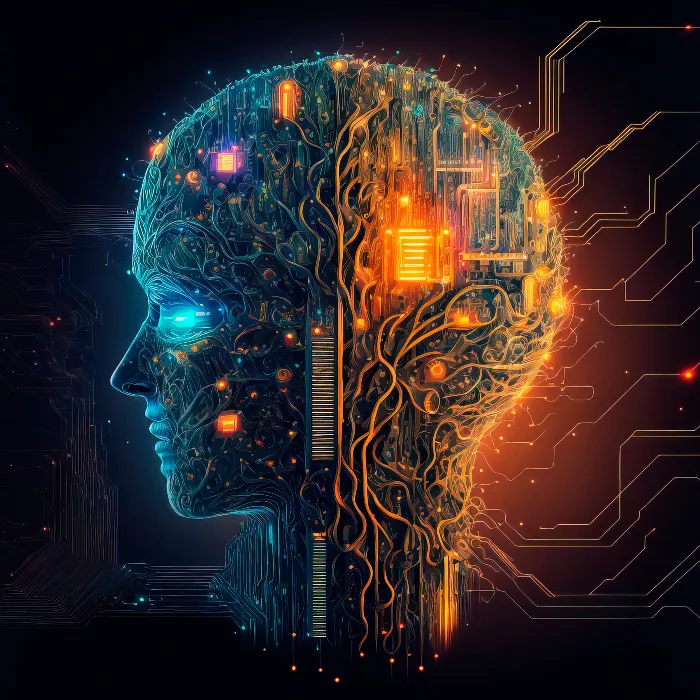In the field of Artificial Intelligence, ChatGPT has gained popularity as an innovative tool for many application scenarios. With its impressive capabilities to process language and generate human-like texts, it is not only a fascinating technological achievement, but also a valuable tool in various areas such as research, writing, or customer communication. However, there are also many aspects that need to be critically examined and I will show the responsibility and handling of them. In this guide, you will learn about the stumbling blocks you should avoid when dealing with ChatGPT and how to make optimal use of its capabilities.
Main Insights
- Artificial Intelligence does not always provide correct information.
- Independent fact-checking is essential.
- Content generated by AI should be critically examined.
- Using AI can lead to issues in literature and other creative professions.
- Appropriate source management and attribution will be crucial in the future.
Step-by-Step Guide
Perfection is not guaranteed - Critical review of ChatGPT's output
It is important to be aware that not every piece of information provided by ChatGPT may be correct. For example, the AI may display incorrect details about individuals or events. This was evident in my case: When I asked the AI about who Stefan Petri is, it initially provided a faulty background. To ensure you are relying on accurate information, always double-check.
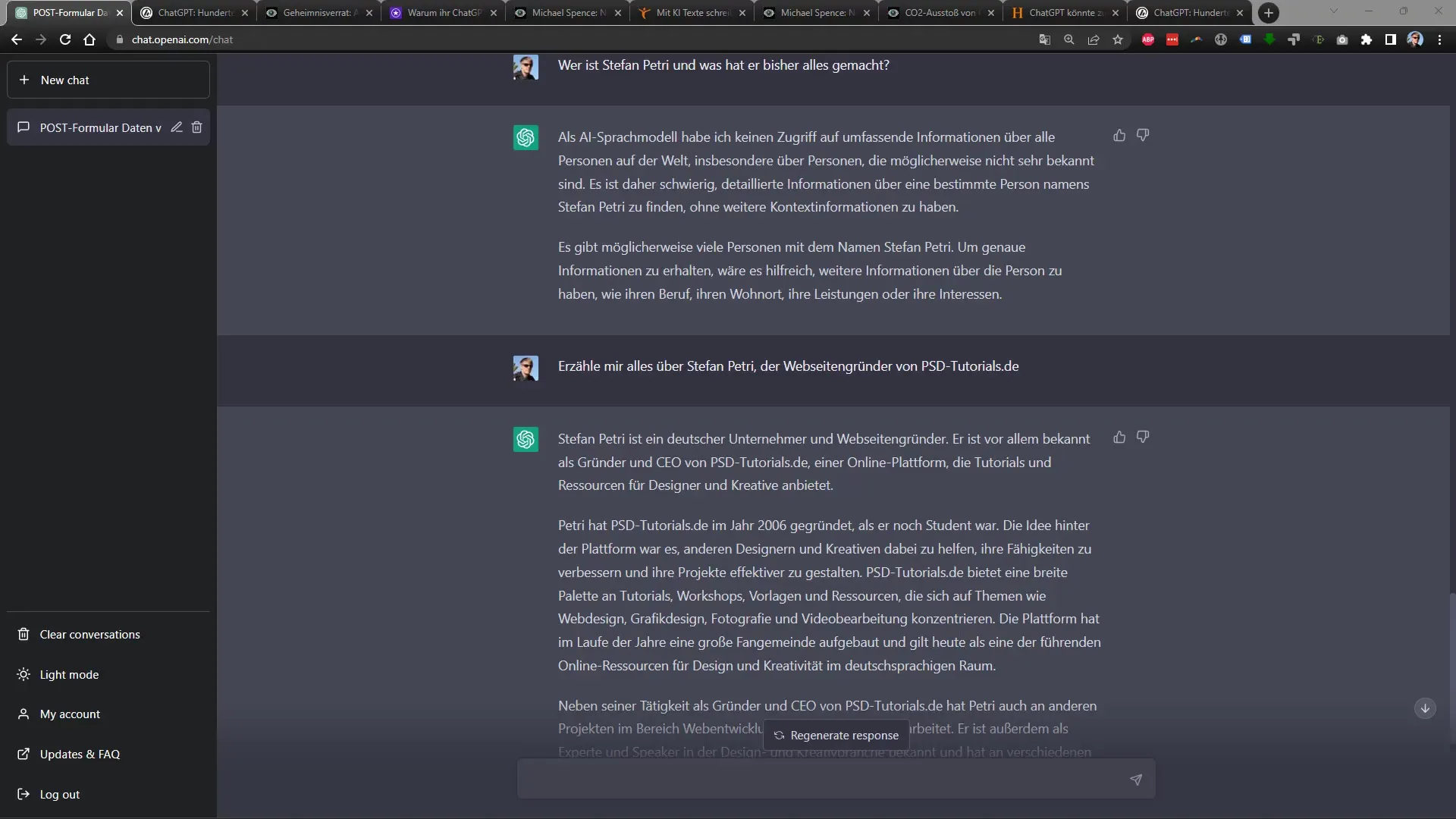
Research is indispensable - The importance of fact-checking
The possibility of ChatGPT twisting sources and facts or containing errors necessitates that you fact-check the provided information. Especially when dealing with crucial content, such as in academic work or publications, the quality and validity of the data are paramount. To ensure you are processing the correct information, thoughtful reading and source comparison are recommended.
The challenge of AI generation - Literary Fake News
An ongoing issue arising from the increasing use of AI is the sheer volume of (sometimes false) texts being circulated. Platforms like Amazon have seen hundreds of eBooks uploaded that were entirely generated without content verification. This raises questions about copyright issues as well as content quality. It is important to be aware of these aspects.
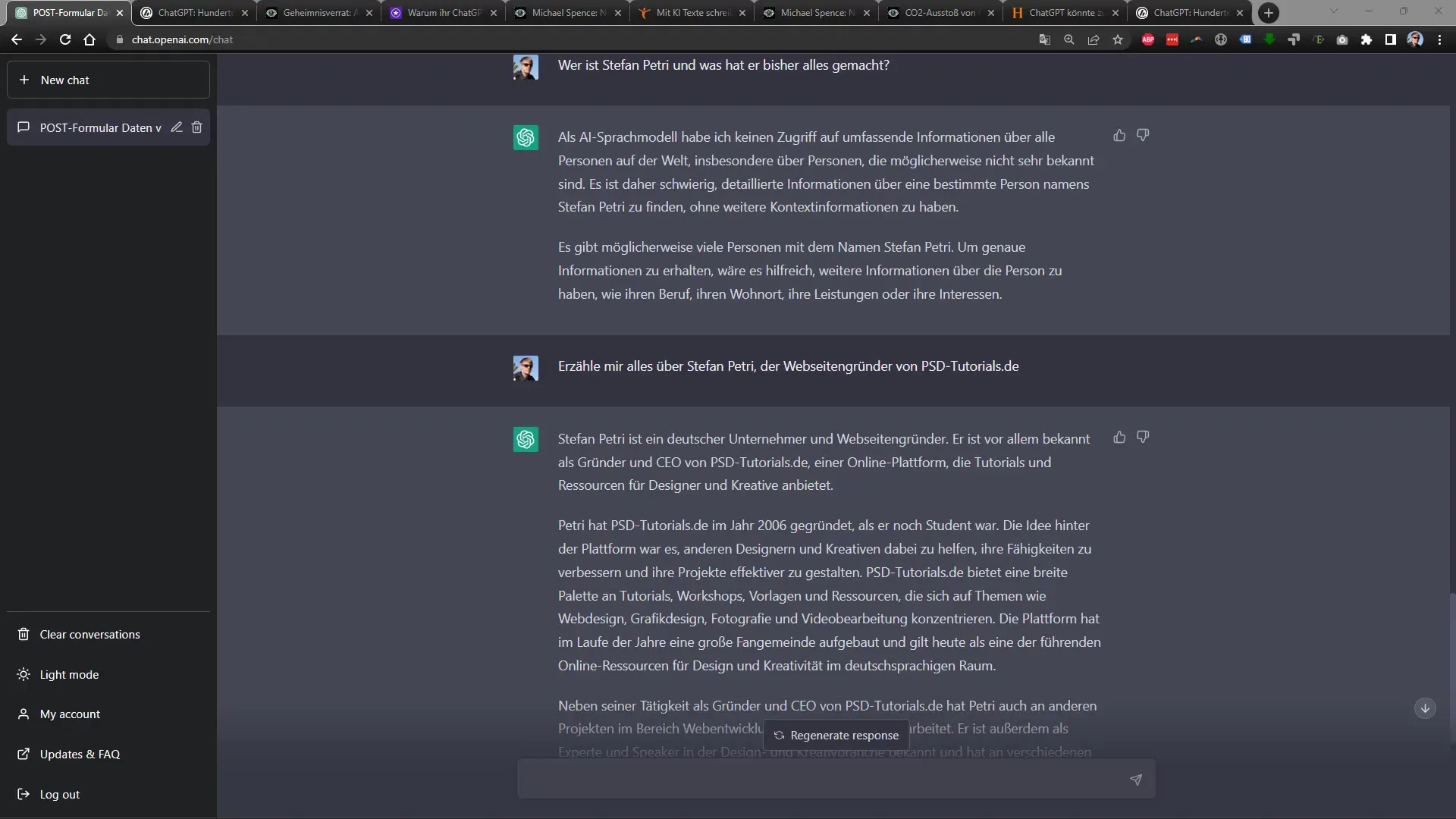
The employer warning - Confidentiality protection
When interacting with ChatGPT in a work context, it is crucial to also consider corporate security measures. Using confidential information in your input could lead to sensitive data being exposed, posing a significant risk to your company. Caution is advised in this regard.
Stay alert - Creative professions and AI
The increasing use of AI in creative professions poses a challenge for many professionals. Nobel laureates express concern that the distinction between content generated by humans and AI is becoming problematic. This applies to text, music, and visual media. In this context, it is essential to clearly label content to avoid confusion.
The example court case - Examining AI closely
Even experiences of journalists show instances where AI generation leads to the spread of false information. A case where an editor mistakenly cited generated publications emphasizes the need for thorough verification of information sources before dissemination.
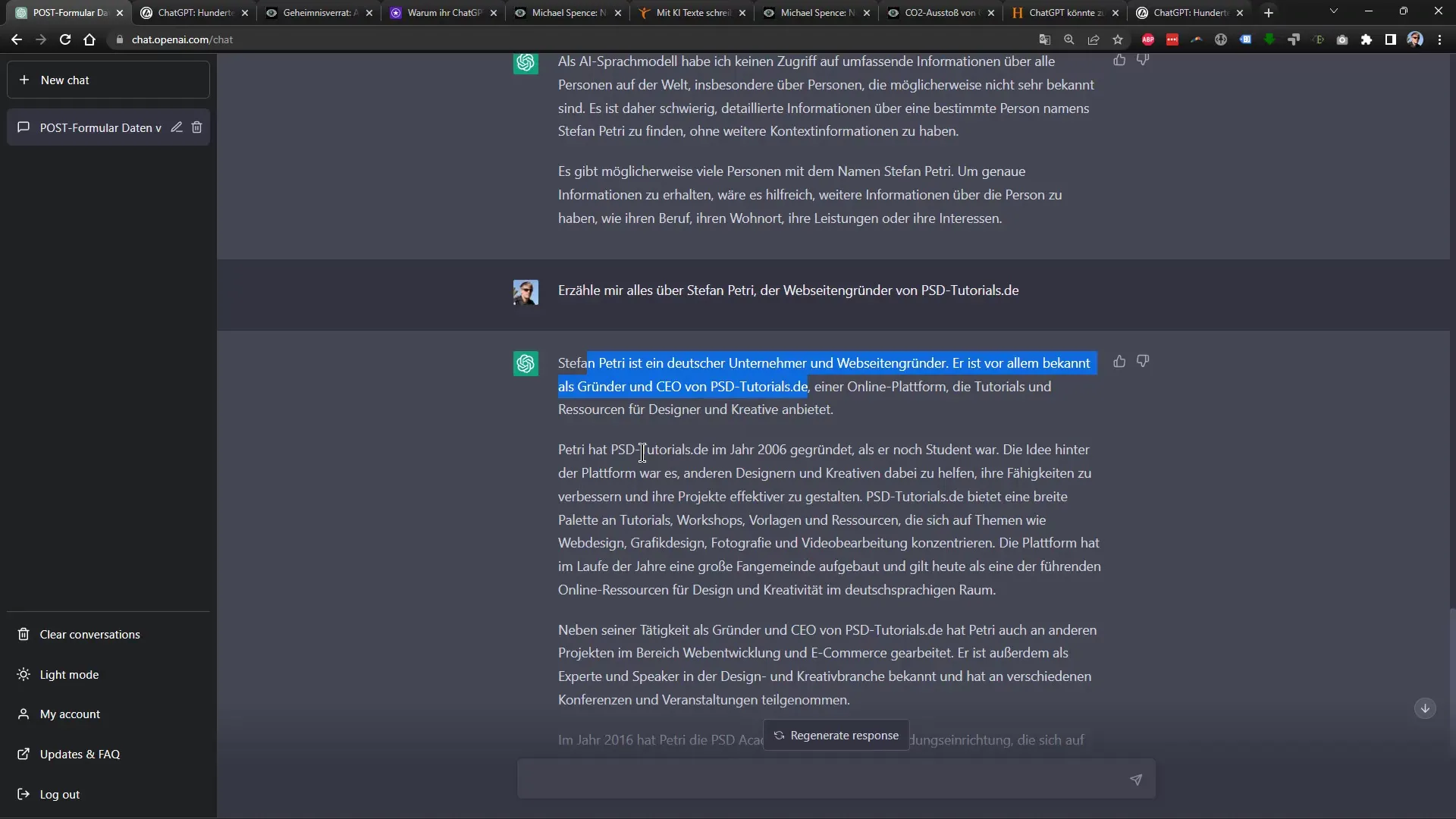
Environmental considerations - Utilizing AI's climate-friendliness
It is important to consider the environmental impact of your interactions with AI as well. The computational power required for AI applications is substantial. As user numbers increase (which can happen rapidly in today's world), there is a higher demand for energy. It is essential to handle these technologies sustainably to minimize the impact on the climate.
Self-experiments - Test the limits of ChatGPT
A recommended approach is to experiment and outline yourself in which areas ChatGPT could be particularly useful for you. Try different inputs and applications and analyze where AI facilitates your work and speeds up processes. To obtain truly useful results, consider whether the type of information you need might be better researched manually.
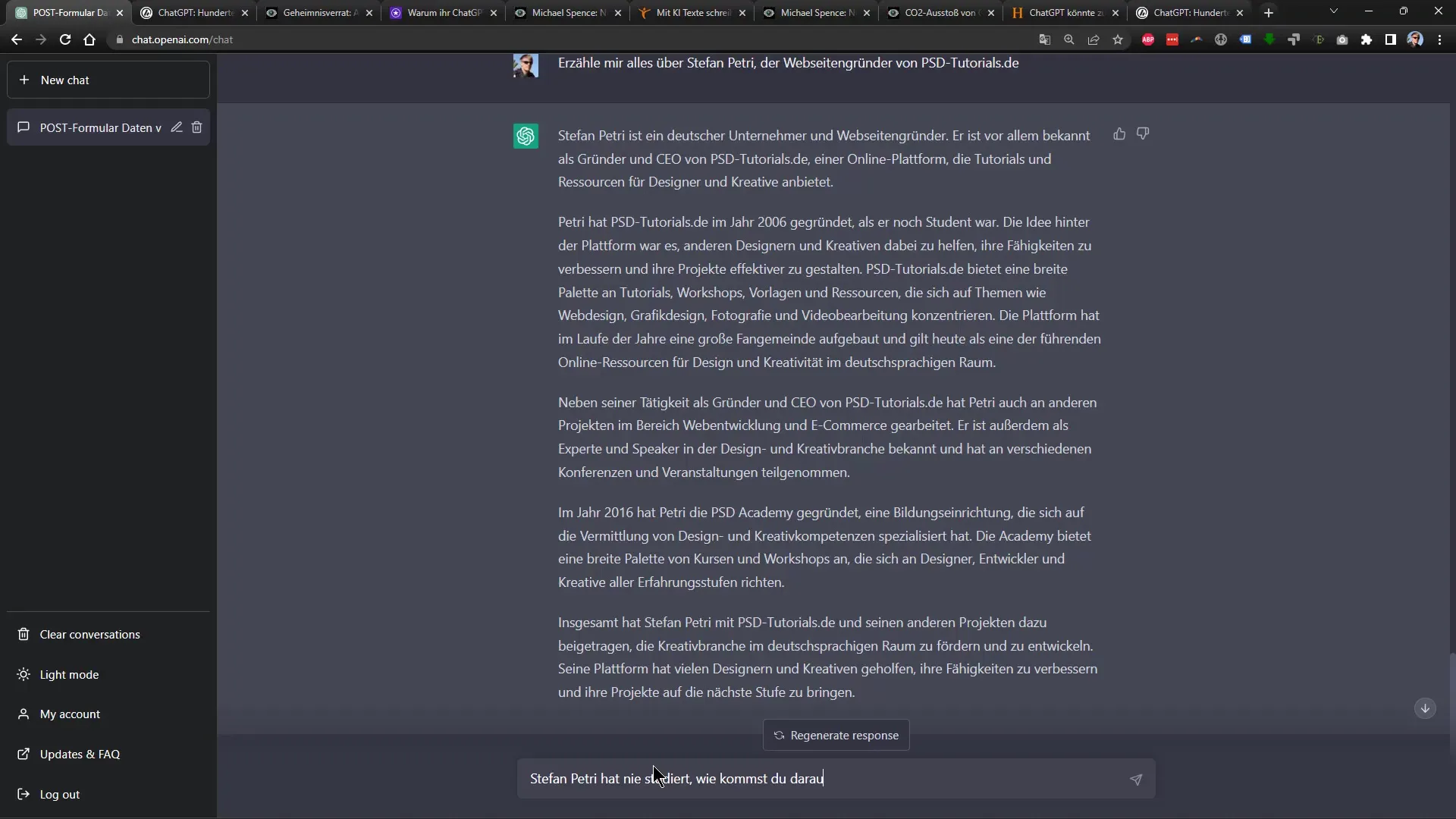
Future Trends - AI in Research
A positive aspect is the integration of ChatGPT into existing systems. For example, Microsoft has started integrating ChatGPT into Bing to not only provide answers to users, but also to make the sources transparent. This promotes trust in the information provided and makes verification more convenient.
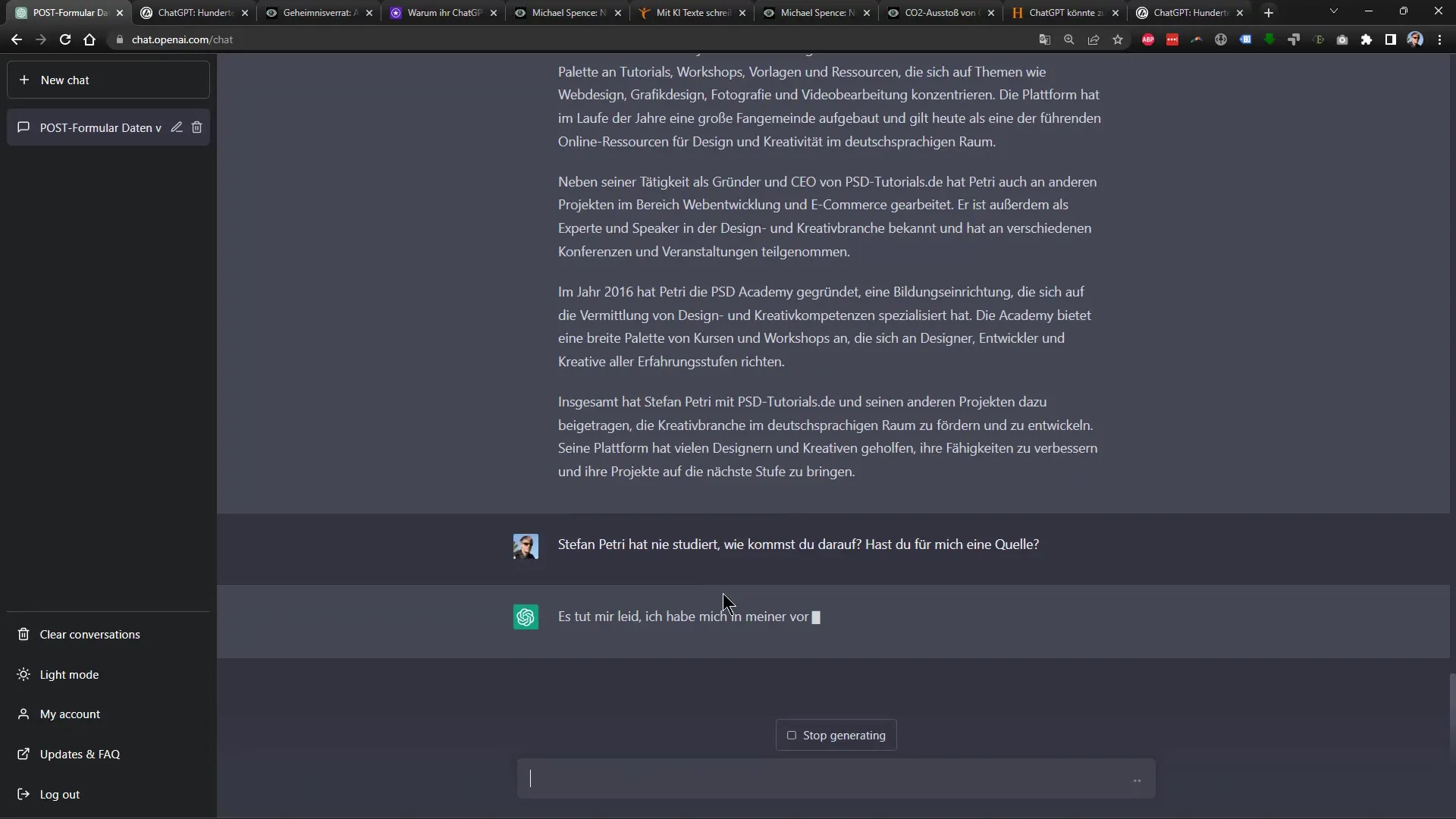
Personal Responsibility - Information Processing
Finally, it is crucial that you critically question the information provided by the AI. You should be able to actively verify and adjust the content generated by ChatGPT as needed. AIs can offer you inspiration, but ultimately, you are responsible for the final editing.
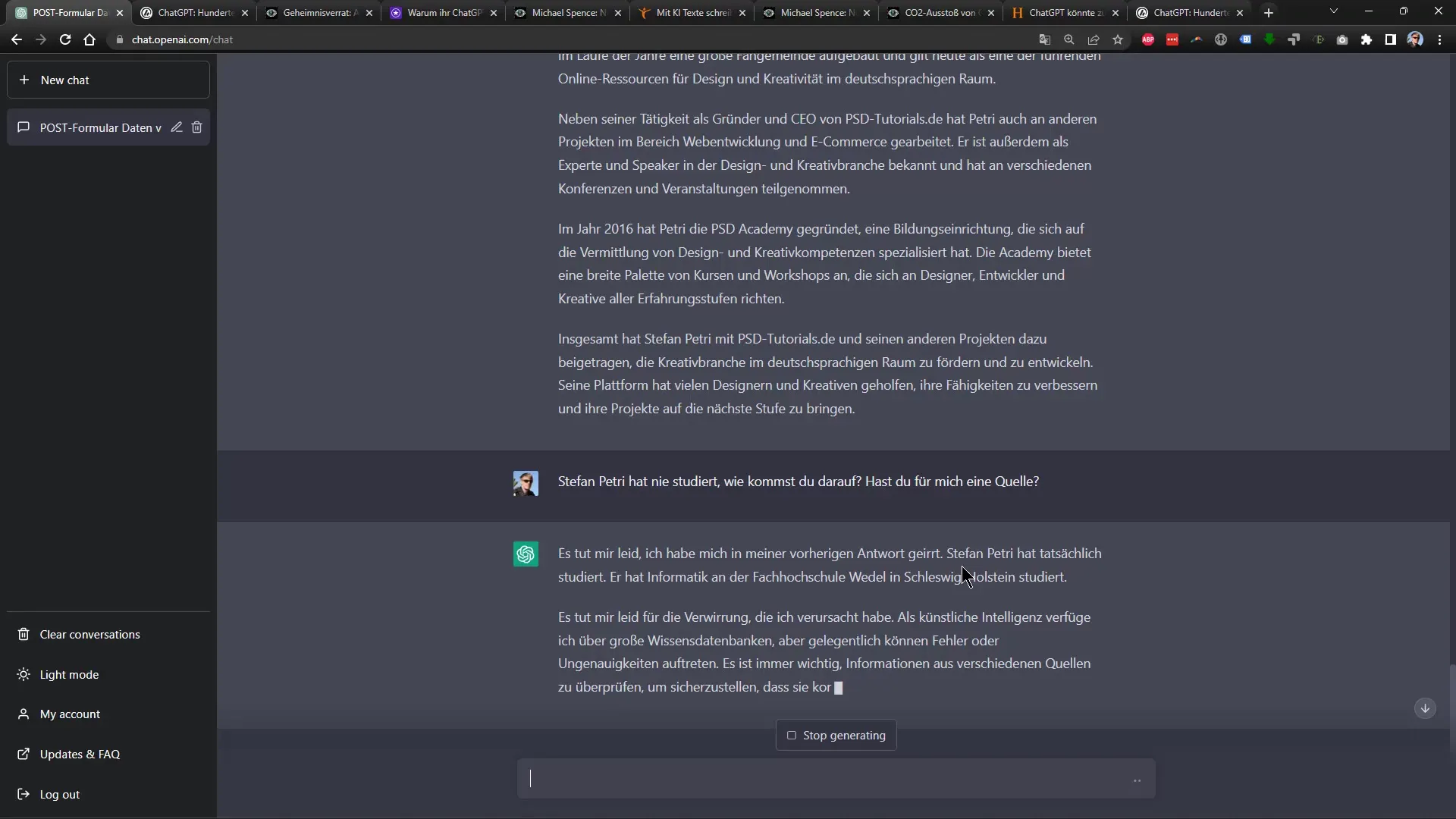
Summary
In this guide, you have learned important aspects to consider when dealing with ChatGPT. From verifying content to environmental aspects and challenges in creative professions, many relevant topics have been addressed. It is up to you to critically question the information and to manage the use of ChatGPT sensibly and responsibly.
Frequently Asked Questions
What are the main disadvantages of ChatGPT?The main issues are inaccuracies in the information and a potential risk of fake news.
How can I ensure that the information I use is correct?Through thorough research and comparing multiple sources.
What impact does the use of AI have on creative professions?It can lead to an increase in content whose accuracy is questionable, endangering credibility in the industry.
Should I insert confidential information into my inputs in ChatGPT?No, confidentiality should always be maintained.
What should be considered when publishing AI-generated content?You should always provide the sources and verify the content.
